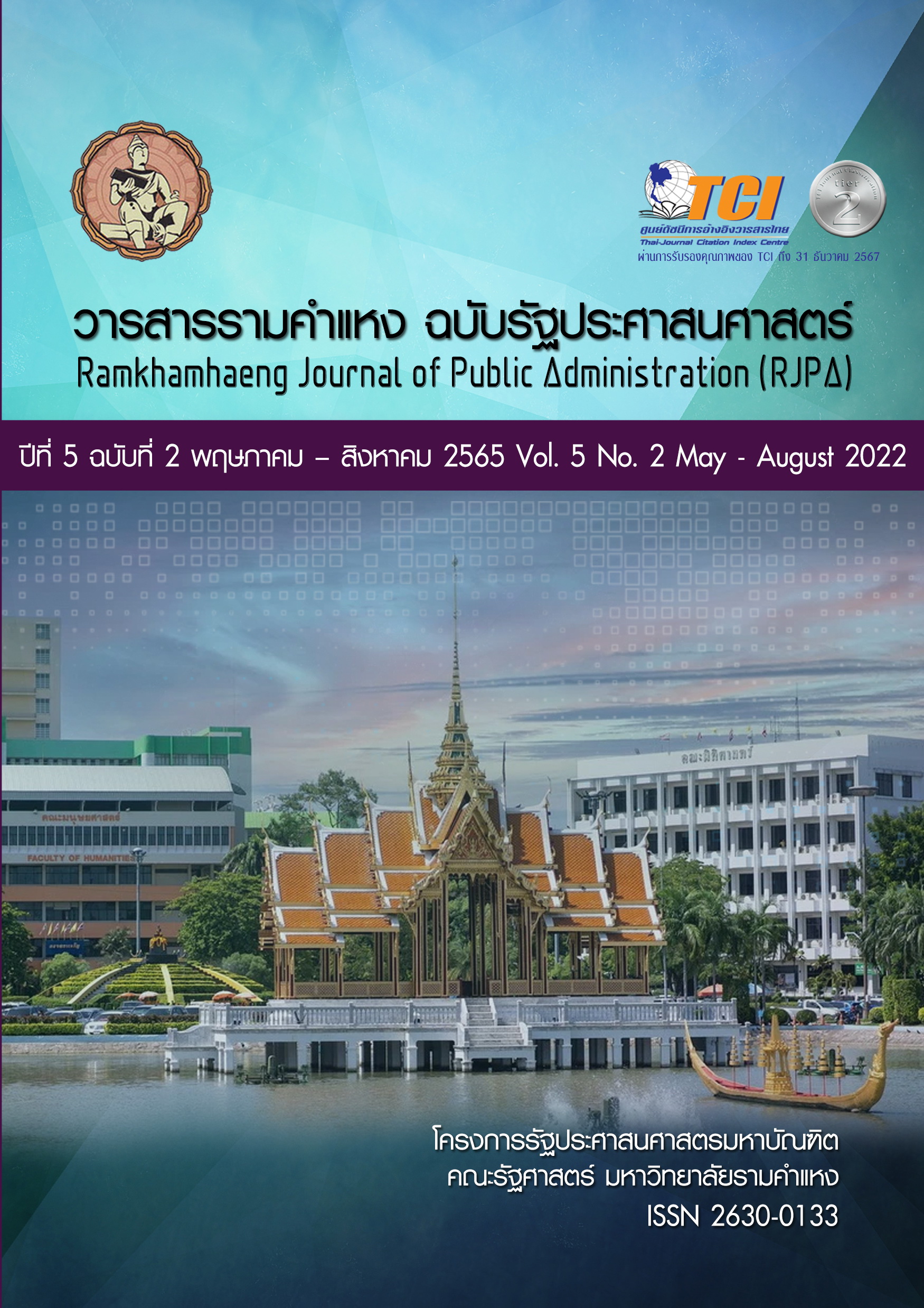The recruitment policy of the Royal Thai Army regarding to the social media utilization and digital footprint
Keywords:
recruitment, social media utilization, digital footprintAbstract
This research is a qualitative research method. Data were collected by interviewing 11 key informants. The objectives of this research are to study 1. policy on considering and selecting civilian personnel to serve in the Royal Thai Army by using social media and digital footprint verification; 2. analyze the impact of the policy and 3. propose measures as a selection system and appropriate guidelines. The results of the research revealed that this policy is an important and necessary in today's era in which the Army has set up to keep up with the situation. Attitudes were examined through the use of social media of the selected participants for consideration. The policy has both positive and negative impacts on recruiters, the Army and related agencies, both directly and indirectly. However, it was also found that the implementation of the policy has clear standards or guidelines. There were well prepare at the policy level, operator personnel, tools and related regulations to be a fair, transparent and verifiable policy especially where such policies are relevant to. The Personal Data Protection Act B.E. 2562 (PDPA: Personal Data Protection Act) that is currently in effect.
References
กระทรวงดิจิทัลเพื่อเศรษฐกิจและสังคม. (2563). รายงานผลการสำรวจพฤติกรรมผู้ใช้อินเทอร์เน็ต ปี 2562. ค้นเมื่อ 1 กุมภาพันธ์ 2565, จาก https://www.etda.or.th/th/UsefulResource/publications/Thailand-Internet-User-Behavior-2019_Th.aspx,
ณัฐณิชา ดวงขจี. (2563). ศึกษาพฤติกรรมการใช้สื่อสังคมออนไลน์ และสมรรถนะการเป็นผู้ประกอบการของนักศึกษา. วารสารวิชาการบริหารธุรกิจ สถาบันอุดมศึกษาเอกชนแห่งประเทศไทย, 2(2), 10-21.
นุสรา วรภัทราทร. (2564). นักรบหรือเหยื่อ: ทหารยุคใหม่ในสงครามโซเชียลมีเดีย. นิตยสารยุทธโกษ, 129(2), 16-19.
นุสรา วรภัทราทร. (2564). การครอบงำทางไซเบอร์และห้องแห่งเสียงสะท้อนซ่อนรอยเท้าทางดิจิทัล. นิตยสารยุทธโกษ, 129(3), 14-17.
บวรนันท์ ทองกัลยา. การทำงานของ HR ไทยต่อจากนี้. ค้นเมื่อ 15 กรกฎาคม 2565, จาก https://th.hrnote.asia/tips/190423-pmathrfuture/
สำนักงานคณะกรรมการคุ้มครองข้อมูลส่วนบุคคล. (2565). คู่มือ PDPA สำหรับประชาชน. ค้นเมื่อ 23 มิถุนายน 2565, จากhttps://www.faceboof.com/pdpc.th.
ศิริกร เอื้อไพจิตร. (2562). รอยเท้าดิจิทัล : ฝ่ายบุคคลเตือน ตัวตนและความคิดเห็นในโลกออนไลน์มีผลต่อการสมัครงาน. ค้นเมื่อ 5 กรกฎาคม 2565, จาก https://www.bbc.com/thai/thailand-48902824
Bunaramrueang, Elamchamroonlarp, Oinpat & Thipsamritkul. (2562). แนวปฏิบัติเกี่ยวกับการคุ้มครองข้อมูลส่วนบุคคล สำหรับการวิจัยและสถิติ. ค้นเมื่อ 16 กรกฎาคม 2565, จากhttps://www.law.chula.ac.th/event/11289/
Hootsuite. (2021). สถิติและพฤติกรรมการใช้งาน social media ของคนไทย. ค้นเมื่อ 25 มิถุนายน 2565, จากhttps://www.slideshare.net/DataReportal/digital-2021-global-overview-report-january-2021-v01
Downloads
Published
How to Cite
Issue
Section
Categories
License
Copyright (c) 2025 นราวิชญ์ จิตรบรรจง, วงพักตร์ ภู่พันธุ์ศรี

This work is licensed under a Creative Commons Attribution-NonCommercial-NoDerivatives 4.0 International License.



